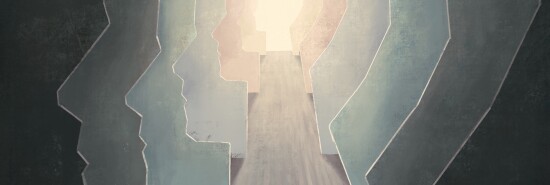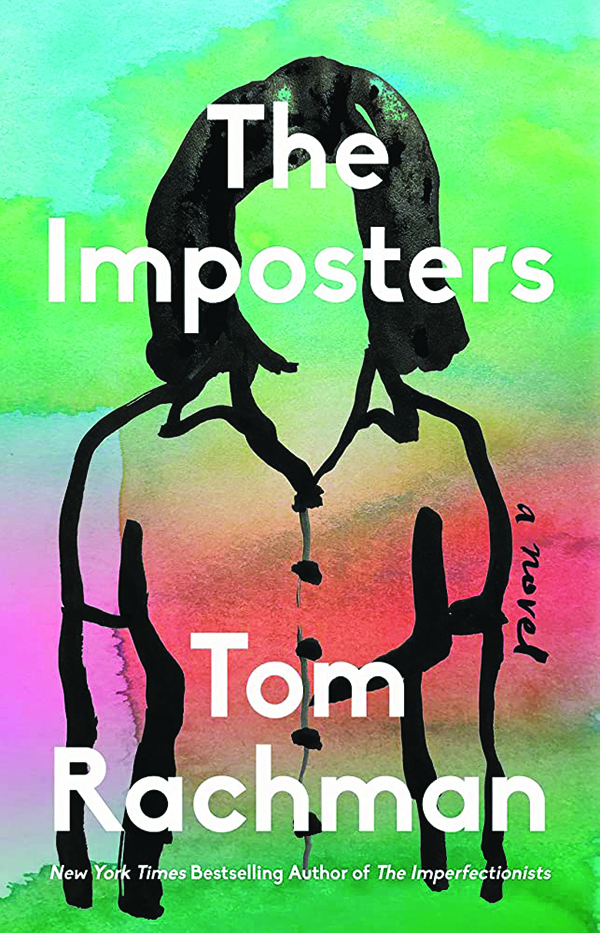
Tom Rachman’s shore between life and fiction
Hugo Gurdon
Ever since Anton Chekhov articulated it as a principle, it has been understood that a gun introduced in the first act of a play will be used by the end, usually to kill someone. In his new novel, The Imposters, Tom Rachman suggests a similarly inexorable, even mechanistic, logic at work in fiction writers. They take every person encountered in life and give them either a walk-on part or even a leading role between the covers of a book.

Rachman’s first work, The Imperfectionists, demonstrated that he is a wonderful storyteller comfortably in command of his narrative. He justifies every demand he makes of readers. His structure is complex, but this is purposeful rather than capricious or arch, and it aptly articulates a central theme of the book. In The Imposters, Rachman drops readers into a literary whirlpool about the way writers, particularly Dora Frenhofer, the fictional novelist at the center of Rachman’s story, plunder life for material. They take every meager scrap of reality and twist it to their needs. This is imaginative and creative but also chilling and mercenary. The Imposters is in part about the blurring of reality and fiction and, with our tenuous grasp on the difference between the two, a contemplation on the difficulty involved in separating them.
The Imposters alternates between Dora’s diary and her fiction. Each chapter leaves a fully realized character to whom we have become attached stranded by the insouciant diurnal rotation of one day into the next. In one case, a delivery man who brings food to Dora’s door is extrapolated from the scant details of their brief encounter and becomes an odious fictional protagonist, feckless, cynical, and selfish, who betrays everyone unfortunate enough to cross his path. This makes Rachman’s world a bleak place, indifferent when it is not downright hostile.
Indifference or hostility engulfs a talentless Indian intellectual scrambling to retrieve his typed confession from the railing of a bridge over a filthy river, a luckless university dropout whose phone contents condemn him to a Syrian torture chamber, and a freelance journalist whose life is wrecked by distortions wrought on her copy by an editor, among others. In each case, it is the written word that brings ruin.
And this is what the protagonist’s writing does to her life. In manipulating every scrap of real life into fictional material, Dora drains her existence of meaning. What was real disappears. Characters are written into fullness, but the people upon whom they are based are thus written into oblivion along with the writer. It is not clear whether the eponymous imposters are the real people in Dora’s life or the characters who supplant them.
This is a novel of and for the online age of attenuated attention spans. Just as, at the opposite end of the spectrum, a Dickens novel suited the mid-19th century by offering Victorians an ambulatory, crowded, richly detailed read over the course of several leisurely months, so Rachman’s narrative is linear and moves at the breezy pace of online browsing. As with online browsing, readers are plunged into a subject, a story, a horror, in an order that seems random but is, in truth, significant and revealing. We care immediately and intensely about the characters, but they are just as suddenly displaced and nearly forgotten. Each story is connected by the overarching mind of the browsing intelligence.
In her decline, Dora does not have the compensatory satisfaction of knowing she is successful. Her renown, never high, is dwindling, and so are her powers. A central tragedy in her life is that she has sacrificed everyone, including her pimply brother, to the transient inventions she might once have thought of as art. Late on, Dora recalls that “she heard peers proclaim that their fictional characters felt more alive than living people. You must allow fellow professionals to lie now and then, if it’s good for business. But characters halt at the end of chapters whereas people won’t stop, even when their stories are done.”
CLICK HERE TO READ MORE FROM THE WASHINGTON EXAMINER
If this all suggests The Imposters is a grim read, it should not. Despite its existential sadness and profundity, it is entrancing, light, witty, and often laugh-out-loud funny. Rachman’s prose is graceful, lucid, and seemingly effortless. His narrative, set amid the surreal social distortions of the coronavirus pandemic, is gripping and original. He conjures complete and engaging characters as fast as any other fiction writer I can think of. One cares about them in all the irony, pathos, and calamity of their various fates.
Rachman asks and triumphantly answers a modern novelist’s existential question — what is a novel, what is it for in our spiraling age of virtual reality and flitting commitment? It is a work such as The Imposters that, like all good novels, takes the trends, pleasures, and anxieties of the epoch from which it springs and weaves them into a story that compels the engagement of sensitive and intelligent readers.
Hugo Gurdon is the editor-in-chief of the Washington Examiner.
